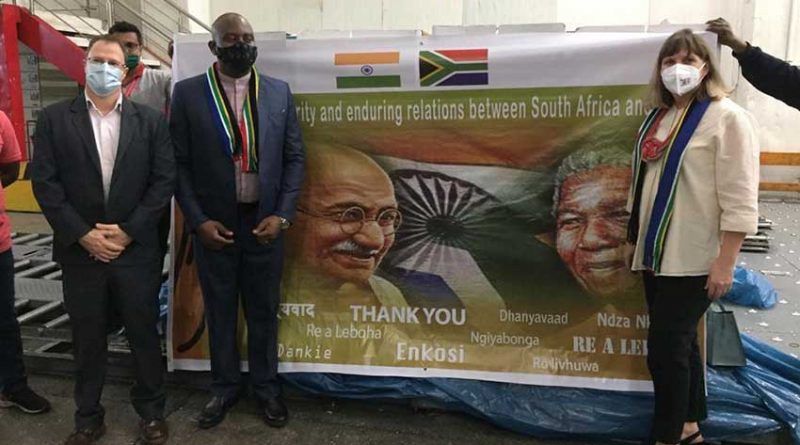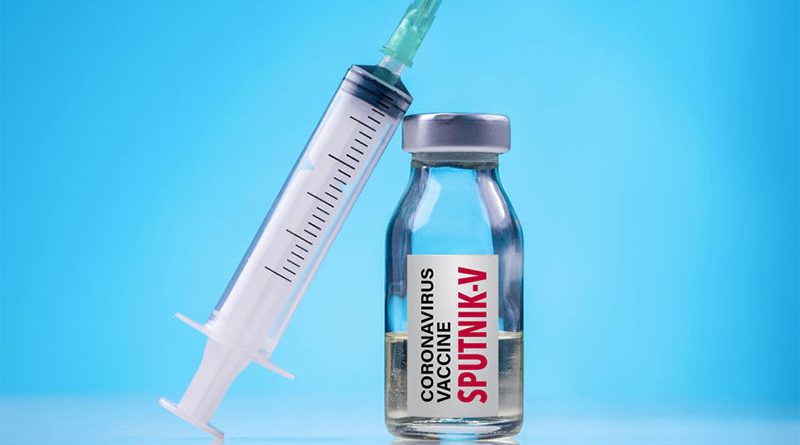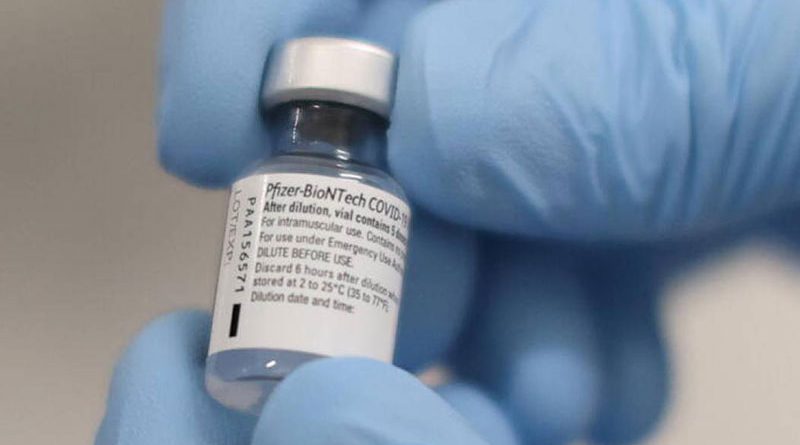SOUTH African President Cyril Ramaphosa and Deputy President David Mabuza are today scheduled to receive the country’s first consignment of COVID-19 vaccine.
The South African political leadership will receive the vaccine consignment from India. The vaccines are from Biovac, a bio-pharmaceutical company that was formed in 2003 in a partnership between government and private investors to establish local vaccine manufacturing capability.
According to a statement from the South African presidency, Biovac is expected to play an important role in the quality assurance, warehousing and distribution of COVID-19 vaccines.
The SA presidency said the arrival of the first consignment at OR Tambo International Airport will mark the start of the vaccine rollout which Ramaphosa described as the largest and most complex logistical vaccine undertaking in South Africa’s country’s history.
“The scale of delivery is unprecedented in terms of the number of people who have to be reached within a short space of time. The aim of the vaccination programme is to achieve immunity across the population. The first phase of this rollout programme will prioritise around 1.2 million frontline health workers.
“Government is coordinating the vaccine programme through the committee chaired by the Deputy President, which is focused on procurement, distribution, actual vaccination, monitoring, communication and mobilisation,” the presidency said in a statement.
- SOUTH Africa has secured an additional 20 million coronavirus vaccines manufactured by Pfizer, national newspaper The Sunday Times has reported, citing an interview with the health minister.
Africa’s most advanced economy has been one of the slowest among major emerging market nations to secure enough vaccines for the majority of its population and is due to begin administering first shots next month.
The extra doses would potentially push total supply secured by the continent’s worst-hit country above 40 million. South Africa has recorded more than 1.4 million cases of COVID-19 with close to 44,000 deaths.
Health Minister Zweli Mkhize told the Sunday Times: “These vaccines are secured and awaiting manufacturers to submit final agreements with details of delivery dates and exact amounts.”
The article did not give further details and the ministry did not immediately respond to questions from Reuters.
South Africa has so far secured around 12 million doses from the COMVAX vaccine distribution scheme co-led by the World Health Organization, 12 million from an African Union arrangement, and 9 million from Johnson & Johnson.
Its first batch of 1 million coronavirus vaccine doses is due to arrive on February 1, destined for healthcare workers. They are the AstraZeneca shots, produced by the Serum Institute of India (SII).
A further 500,000 doses is expected from the SII in February, also for health workers.
ALGERIA yesterday launched a coronavirus vaccination campaign, a day after receiving its first shipment of Russia’s Sputnik V vaccine, the government said.
The campaign started in the Blida province, 40 km (25 miles) southwest of the capital, Algiers, where the country’s first confirmed cases of the coronavirus were reported last March.
Algeria received 50,000 doses of Sputnik V on Friday, said Djamel Fourar, head of the Scientific Committee in charge of dealing with the pandemic.
The North African country will receive a shipment of the AstraZeneca vaccine on Sunday, Communication Minister Ammar Belhimer said, without providing the number of doses.
The vaccine campaign will prioritise health workers, people with chronic diseases and the elderly.
Algeria has so far reported 107,122 confirmed cases of COVD-19, with 2,888 deaths.
RUSSIA and China have approached Zimbabwe about supplying vaccines to tackle its escalating COVID-19 outbreak amid concern about Harare’s ability to afford the shots, with plans for meetings with business leaders who have offered to pay for them.
Authorities in the impoverished southern African nation are scrambling to contain the accelerating spread of the coronavirus. Infections have doubled in just the past few weeks and three government ministers have died in the last 10 days.
Zimbabwe doctors’ groups say that hospitals are quickly filling up with COVID-19 patients and cite an increase in the number of infected people dying at home, unable to afford the steep fees charged by hospitals.
Authorities are now trying to establish whether a more infectious South African variant of the virus is circulating in Zimbabwe, fearing it may have entered when thousands of citizens living in South Africa returned home for the December holiday.
Portia Manangazira, a director of epidemiology and disease control in the Health Ministry, told a parliamentary committee that China and Russia were among those that had approached Zimbabwe to offer supplies of their COVID-19 vaccines.
“They have near pre-qualified vaccines and those are going to be for sale…they might offer a small donation,” Manangazira said without elaborating.
Zimbabwe has recorded a total 31,320 coronavirus cases and 1,005 deaths – more than half reported since the beginning of this year, data released late on Sunday showed.
The recovery rate has fallen to 71% from 82% on Jan. 1.
Acting Health Secretary Robert Mudyirandima said President Emmerson Mnangagwa would on Tuesday meet business leaders who have offered to finance vaccines to help out the cash-strapped government.
Zimbabwe is also in contact with the World Health Organization’s COVAX scheme set up to deliver shots to poor and lower-income countries. Harare hopes to use COVAX to inoculate about three million Zimbabweans – or 20% of the population.
The COVAX scheme is due to roll out next month, amid growing criticism of vaccine inequity from both the WHO and others as wealthy countries inoculate millions of people using shots procured through bilateral deals.
IVORY Coast’s government said it will receive the first batch of around 100,000 doses of the Pfizer BioNTech coronavirus vaccine in mid-February, around two weeks later than initially planned, due to delays in availability of the shots.
Government spokesman Sidi Tiemoko Toure said on Wednesday the country plans to roll out its inoculation programme in the first quarter and would authorise vaccines from AstraZeneca , China’s Sinopharm and Russia this week.
While richer nations have secured and launched mass vaccination campaigns, countries in Africa are still scrambling to secure supplies as most grapple with the second wave of infections.
“The first deliveries of the Pfizer vaccine of around 100,000 doses initially scheduled for the end of January 2021, have been postponed to mid-February due to delays in the availability of vaccines,” Toure said.
Countries in sub-Saharan Africa, some among the world’s poorest, are relying on the World Health Organization-backed global COVAX scheme which has secured nearly 2 billion doses and aims to deliver 1.3 billion of these in 2021 to 92 eligible low- and middle-income nations.
Toure said the 100,000 doses Ivory Coast secured are separate from the COVAX alliance scheme. The government has previously said frontline health workers and the vulnerable section of the population would be first to be vaccinated.
More than 3.3 million COVID-19 cases and over 80,000 deaths have been recorded on the continent to date, according to a Reuters tally.
Source – Thomson Reuters Foundation



